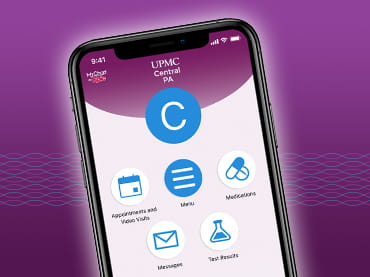Returning to work is a return to normalcy for many people. But it can come with some challenges. You may find that you have difficulty adapting to the demands of your job right away. You may also have lingering treatment-related problems such as chemo brain or neuropathy. It’s important to speak with your doctor first if you are considering returning to work after treatment.
Another important step in your return to work is to set up a call or in-person meeting with your company’s Human Resources department. Do this after you are cleared for work. Ask if your company has a formal return-to-work or disability management program. You may also want to discuss the possibility of a flexible work arrangement as you get used to the demands of a normal schedule. Your company may request documentation that verifies your limitations before it grants a work accommodation. If your request is denied, your employer is required to determine if there’s an easier or less costly accommodation that can be made to meet your needs.
Tip: Here are some tips to help make your return to work smoother:
- Plan to take small breaks throughout the day to help maintain your energy level
- Use lists, reminders, meeting settings or task alarms
- Meet with your manager regularly to talk about the transition and any changes or adjustments you may need
Your UPMC Pinnacle Breast Care Center team can help you with other strategies to help ensure a successful return to work.
Speaking with Co-Workers
The decision to speak with co-workers about your breast cancer is up to you. However, some of your co-workers may have questions if your appearance has changed. For example, you may have lost your hair or eyebrows after chemotherapy. Prepare in advance what you want to say, how you want to say it and who you want to tell. This can be done in a private conversation, though an email, or you can ask your manager or another colleague to do it for you. Be sure to share how your return to work will affect them and also how you are doing. You may find that some people aren’t comfortable talking about your experience. In most cases though, co-workers are supportive and will want to help.
Dealing with Discrimination
Some people find they receive different or unfair treatment after returning to work. Co-workers or supervisors may be responsible. You may be passed over for a promotion or demoted for no known reason. You may not be given flexibility for medical appointments. There are laws and regulations that prohibit discrimination. You can take legal action if necessary. An example is the Americans with Disabilities Act.
The best way to handle discrimination is to take steps to prevent it. These can include:
- Staying up to date on projects or developments that occurred while you were absent
- Seeing a counselor about making the transition back to work. You may also speak with other survivors for tips.
- Asking your doctor to provide a letter stating your ability to return to work
- Reviewing past work assignments
- Attending classes or workshops to refresh your job skills
Finding a New Job
Some breast cancer survivors find that they need to find a new job after treatment. This could be because the experience itself caused you to want to change your priorities and career path. In some cases, you may not be able to perform the demands of your prior job.
The idea of a job change may concern you. Applying and interviewing may feel overwhelm you. A career counselor or a UPMC social worker can help you prepare for this process. You may also find encouragement through support groups for job seekers.
Tip: Things to keep in mind when applying and interviewing for a new job:
- An employer, by law, cannot ask questions about your health or about a medical condition.
- If you choose to tell a potential employer about your cancer, they may still not ask you any questions about your cancer, your treatment or your recovery.
- Your employer must keep any information you share confidential.
- An employer is allowed to ask questions related to the duties and responsibilities of a job.
Need more information?
Phone: 717-545-5000
Request Information
Locations
PinnacleHealth Breast Care Center
Located at UPMC Hillman Cancer Center at the Rocco and Nancy Ortenzio Cancer Pavilion
2035 Technology Parkway
Suite 200
Mechanicsburg, PA 17050
Phone: 717-988-1450
Fax: 717-221-5544
PinnacleHealth Breast Care Center
Located at Medical Sciences Pavilion
4300 Londonderry Road
Suite 202
Harrisburg, PA 17109
Phone: 717-545-5000
Fax: 717-545-5002


















